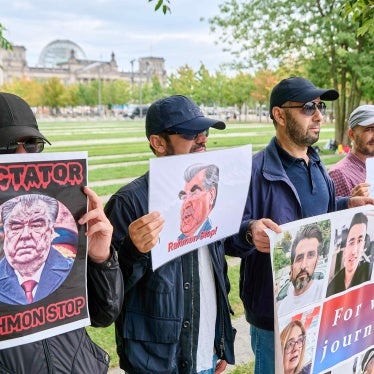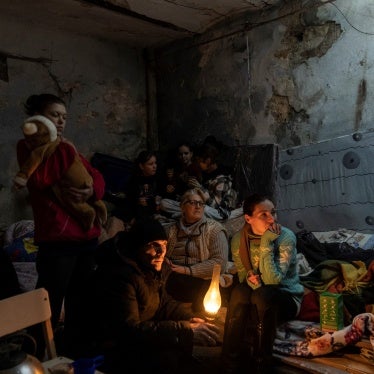(New York, January 25, 2002) Human Rights Watch today said that an upcoming presidential referendum in Uzbekistan, a close U.S. ally in the war against terrorism, is fatally flawed.
On January 27, President Islam Karimov of Uzbekistan will hold a referendum to amend the constitution to extend his term of office to 2007. Conditions for the vote fall below basic international standards. The Karimov government allows no free press or independent political opposition to operate in the country.
The Organization for Security and Cooperation in Europe (OSCE) and the United States government have declined to send observers to Uzbekistan for the referendum. The U.S. cited concerns that the vote "will not be consistent with international standards."
While the U.S. has criticized the referendum, it continues to develop close ties with the Karimov government. Top-level Pentagon, State Department and Treasury officials are scheduled to arrive in Uzbekistan on the very day of the referendum to meet with President Karimov and hammer out a series of deals on military and economic assistance. The meetings are the first of the newly formed U.S.-Uzbek Joint Security Cooperation Consultations, which are designed to assess bilateral relations on an annual basis.
President Karimov is also expected to visit the U.S. in the coming months.
"The timing of this referendum is no coincidence," said Elizabeth Andersen, Executive Director of the Europe and Central Asia division of Human Rights Watch, "Karimov is testing the international community to see what he can get away with now that he's viewed as a critical partner in the war. He probably believes that he's traded a military base and a bridge for a free ride on democracy and human rights issues."
Uzbekistan has given basing rights to U.S. forces, and, after much international pressure, opened a bridge for relief supplies going into Afghanistan.
Karimov, who came to power as Communist Party First Secretary in Soviet Uzbekistan in 1989, was named President of that Soviet satellite in 1990. Karimov then declared victory following a seriously marred election in 1991, when he became President of the independent Republic of Uzbekistan.
Karimov was re-elected for a would-be final five-year term in 2000. The OSCE declined to send observers to that presidential vote after determining that the election environment allowed no possibility for a genuine contest. U.S. officials announced that the election "was neither free nor fair and offered Uzbekistan's voters no true choice." The State Department also noted that the only candidate ostensibly running against Karimov announced that he himself had voted for the incumbent president.
"It's only been two years since the embarrassingly illegitimate presidential election, so calling a referendum now looks like a blatant grab for power," said Andersen.
Political participation is out of the reach of average citizens in Uzbekistan, where there are no genuine opposition political parties and no independent news media.
President Karimov has extended his term in office through use of a referendum once before, in 1995. Uzbekistan's constitution provides for term limits of two five-year terms. The January 27 referendum is designed to amend the constitution to allow for seven-year presidential terms.







